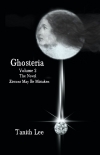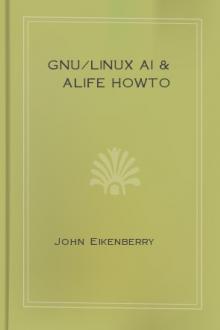Ghosteria Volume 2: The Novel: Zircons May Be Mistaken by Tanith Lee (phonics reading books TXT) 📗

- Author: Tanith Lee
Book online «Ghosteria Volume 2: The Novel: Zircons May Be Mistaken by Tanith Lee (phonics reading books TXT) 📗». Author Tanith Lee
Worse, I bored all my family,particularly my mother and sister since, during my early years, they had tospend more time with me than either my father, or my brother Eric.
Once I heard a woman friend of mymother’s acquaintance speak quietly to her when I had just left the room.Hearing my name, maybe instinctively, I hesitated outside the door to listen.It taught me never to eavesdrop, for someone such as myself will rarely hearanything good. “Poor Laurel,” said the woman friend. “To come of such ahandsome family and to inherit so little from it in either looks or spirit. Itmust be a great burden, my dear. Still, there is Constance, she’ll do well. WhereEric, of course, is a splendid young man.”
What my mother said I have noidea, but she will have agreed no doubt, in words, or with one of her heartfeltsighs.
There then, in that silly andpointless manner, I became and was, and grew up to be eighteen years old.
Theterrible War had begun, in fact, four years previously, in 1914. Somebody wasshot. I could never quite grasp who, or where, because nobody explained it tome. But suddenly there came to be a ferment. Patriotic outcry commenced, andvery soon after the urge for all young men to enlist, to give themselves overto Duty. Our enemy was Germany, which circumstance, or so I gather, occurredagain in the late 1930’s. I hope I have that correctly; I’m afraid I alwaysmake mistakes, yet I trust this may be more pardonable following my ousting toa non-physical existence. (I’m not sure non-physical is a proper expression.I’ve picked up, as they say, rather as one might pick up bits of money, orfruit, from a confusing street, more recent expressions and phrases, by which Imean talk of the later eras that succeeded my very short span. A lot of thesecame from that thing called a Tea V. No doubt, it’s really just my stupidity.)
Eric gave himself up to Duty. Notimmediately, but in a while. My mother became used to sitting weeping. She wasmaddened by the fear that he would die, or be mutilated by shot or shell. Thislatter option may have seemed worse to her.
As for Constance, she alteredinto some sort of nurse. I think this was about 1915. She looked quitebeautiful in the horrid uniform, naturally. And when at home for her spells of‘leave’, she would talk on and on of the dying soldiers whose hands she hadheld, whispering to them that there was nothing to be afraid of, and how theyblessed her for it.
In 1916, despite the Storm andStress of the War Situation, I had been ‘brought out’. I wore a white dress,and had almost fainted again, from fright, before we drove to the event. It wasa vast hunt ball, rather muted by the fact that so many of the young were nowelsewhere, the males fighting, killing and dying, the females nursing and, too,now and then dying, when the zeppelins had passed over England, like a flock ofangry angels Or else, inevitably, overseas in dangerously located hospitals .
Unarguably, I should know so muchmore about the course and dramatic highlights, a term I think more often, postmy era, applied to colouring the hair, of the Great War. But as I’ve said, Iwas ignorant, silly, slow, and nobody explained much to me. The brief writtenimages I snatched from the journals left me only more befuddled, and nauseous.(If they had had Tea V then, my stars, it scarcely bears thinking of.) Therationing, even, scarcely touched my family. There were always ‘ways andmeans’.
Eric won some medal. I can’t rememberwhat it was for. Conspicuous gallantry, I’m sure. And Constance became engaged toa quite beautiful senior officer, a brigadier or something similar, that shehad nursed back to full health from the removal of a chip of bomb-burst lodgedin his side. He came of a wealthy and glamorous family, whose heraldic nameeludes me, as does his Christian name. I think secretly I called him ‘Cuckoo’,so debatably his surname might have been Cook-something-or-other.
I feel I must stop this silly chattering.I must – what did they say in the 1920’s – no, the 2010’s? – cut to thechaise.
It was 1918. The War was comingin to land, in a belly- flop, to be quite coarse, and so many stranded in itswake, all broken, poor souls, or lost, and one saw these women, mothers,widows, sisters, weeping in the winter mornings, standing out beyond the house,where the village was back then, with the telegrams in their hands. “Dead,”they said, the telegrams. “We regret.”
They shivered, the women, andsometimes the men did too, the fathers, sons and brothers or, dare I say thisnow, the unspoken lovers of those other lost men, ploughed deep into thewine-red blood and midnight mud of France, or wherever it was they were mowndown. Or else buried in graves, which were all alike, and like the stone-petrifiedwooden footprints of the Devil passing over Europe, a Devil that did not exaltbut wept and shivered, as the mortal others did, left behind on that frozentimeless shore of grief.
Hewas called Ashton.





Comments (0)